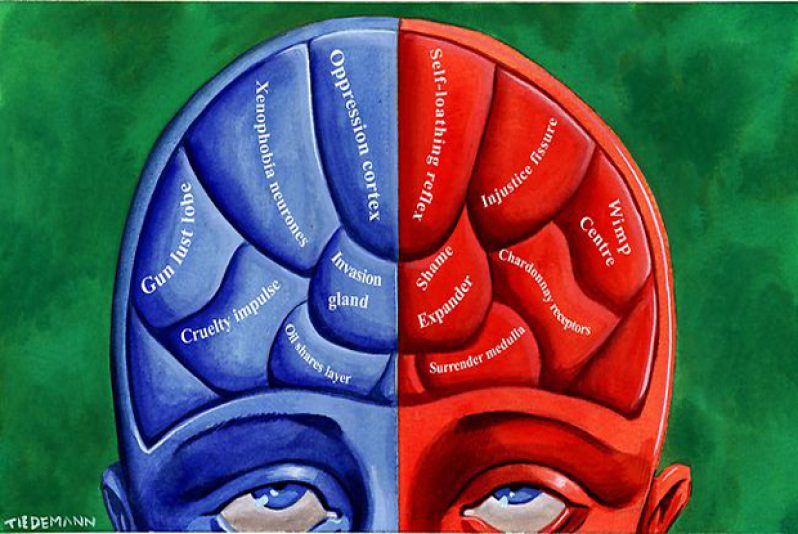IT is not uncommon for cabinet ministers of governments that pride themselves in upholding the tenets of democratic governance to go on the offensive with angry outbursts against established human rights and other civil society organisations, as well as the media when faced with recurring problems that cannot be publicly ignored.
I will focus on two most recent examples within our Caribbean Community-one pertaining to the offensive spreading problem of festering piles of garbage in Barbados; the other of illegal migrants being ‘herded like cattle’ in The Bahamas prior to deportation and without due process.
*First, Barbados: Amid recurring complaints from within various communities against the eyesores of a persistent build up of mountains of garbage that, inevitably, attracted the media’s attention, Minister with responsibility for the environment, Dr. Denis Lowe, came out swinging with an angry verbal blast at public criticisms of the Sanitation Authority and his Ministry, including specific calls for his resignation in the absence of a speedy resolution.
In that CARICOM partner state which, comparatively speaking, takes pride in maintaining a relatively clean environment, and where the media remain conscious of their social responsibility, Minister Lowe was to react with angry defiance in debunking calls for his resignation.
“People demanding my resignation,” he said, “don’t have any power over my appointment so they can call from now till the cows come home….”
Such an inelegant outburst makes a mockery of democratic governance that involves people’s participation with the crucial exercise of their votes at scheduled elections, the results of which determine the formation of a government and the selection of cabinet ministers by the Prime Minister who is armed with constitutional powers to appoint and dismiss cabinet colleagues.
In the circumstances, as Minister Lowe should know, when dissatisfied people, who are voters, call for the resignation of a cabinet minister, the Prime Minister would be expected to take note of the problem (s) at hand with a view to finding a resolution.
In the particular case involving the build-up of piles of garbage, long before and after Christmas, perhaps the politician with cabinet responsibility for the environment could have been further rattled by a ‘Daily Nation’ report on “cabinet shuffle coming” (no names mentioned) that appeared a few days prior to his angry reaction to criticisms of his handling of the prevailing distressing sanitation problem.
Bahamas’ dilemma
*Across in The Bahamas—like Barbados another major tourism resort-the dilemma is of an entirely different nature. Accustomed to having to cope with illegal immigrants, mostly Haitians, hoping to eventually land on the shores of the United States of America, successive governments in Nassau have had to contend with claims of human rights violations of such immigrants.
The Grand Bahamas Human Rights Association (GBHRA), which has acquired an impressive reputation for exposing violations of the basic rights of such immigrants as part of its stated mission, disclosed in a media statement shortly after Christmas that under a new legislation, immigrants were being rounded up and subjected to degrading inhumane treatment prior to deportation.
The confrontation between the GBHRA and the government over a new policy that empowers the immigration authority to unilaterally apprehend non-nationals and demand evidence to confirm official permission to live and work in the country, was further aggravated when social media started exposure of a photograph depicting a group of distraught immigrants, ‘herded like cattle,’ being transported in a trailer.
A furious Minister of Foreign Affairs and Immigration, Fred Mitchell, deemed the display of the photograph on social media as “a false and malicious construction of events” as he castigated the GBRA for holding up the government and country to public ridicule.
But the President of the GBRA, Fred Smith-a senior counsel and high profile human rights activist (personally known to this columnist)—remained unfazed. He subsequently responded with a declaration to institute a legal challenge against the government’s controversial new immigration legislation that, he insists, seriously compromises the basic human rights of immigrants, among them those living and working in The Bahamas.
Assuming the correctness of the GBRA’s stand against the government’s new immigration law that, incidentally, smacks of the sort of degrading treatment being experienced by Haitians in The Dominican Republic, including those born in that country many years ago—then CARICOM would have more than a moral obligation to demonstrate its own interest, consistent with a claimed commitment to encourage and maintain respect for fundamental human rights.
It just happens that The Bahamas Prime Minister, Perry Christie, has now assumed the six-month rotating chairmanship of CARICOM and seems set to host the Community’s next regular annual Heads of Government Conference in Nassau in July.
Analysis by Rickey Singh
(Rickey Singh is a Barbados-based noted Caribbean journalist)





.jpg)








